John Medeski. photo: wordloaf
Sincerely, John
By Laurel Dammann, Melissa Troutman, & Joshua Pribanic for Public Herald
Listen to Podcast: John Medeski Interview “Artists Against Fracking”
[audio: http://commondatastorage.googleapis.com/public_herald_podcasts/John_Medeski_Podcast%201.mp3]
Summer 1969, half a million people gathered on a dairy farm in upstate New York to dance, drink, listen to music, and make love; to stand up, and maybe even fall down, for peace. If the Vietnam War had never happened perhaps neither would have Woodstock. Though the war ended, it wasn’t due to a bunch of people gathered in the Catskill Mountains, and it was only after the destruction had already taken place.
Fracking is no Vietnam War, but it has unified another group artists and musicians in an attempt to stop it. Fracking is used to bring oil and natural gas to the surface by cracking open bedrock deep in the earth with millions of gallons of chemical-laced water per well. It’s been touted as the means for national security through “energy independence” and advocated around the world as a vital economic boost during global financial crisis.
Where fracking occurs stories are left behind. Stories of getting rich quick, or at least getting the bills paid off, bad water, sick animals and people, jobs – some temporary, some not – toxic air, stolen land, unethical companies, booming investments, collusion between government and industry. Whether it’s Texas, California, Wyoming, Ohio, Colorado, Pennsylvania, South Africa, Romania, France, Ireland, Australia; just google “fracking” and you’ll see. Sifting through the drama you eventually find the data, but even the science gets murky, depending upon who wrote it – or who funded it.
While industry continues to claim that fracking has never caused water contamination, Public Herald, among many others, has reported that it has. To quote one Pennsylvanian landowner: “On Sunday they started fracking, on Tuesday the water turned brown.”
There are many cases of water contamination documented by New York’s neighbor, Pennsylvania, specifically by the Department of Environmental Protection. And then there’s the EPA’s findings, revalidated by the United States Geological Survey in September, that fracking contaminated water in Pavilion, Wyoming, where residents can no longer drink or cook with their water.
But the industry, through mouth pieces like the group Energy In Depth, continue to deny that fracking can cause water contamination and target those who speak out against it, including Artists Against Fracking, founded by Yoko Ono and Sean Lennon. EID’s Nicole Jacobs calls Artists Against Fracking “Artists Looking for Relevance.” And who are these artists looking for relevance? They range from Leonardo DiCaprio to MGMT, Thurston Moore, Lady Gaga…and John Medeski, an innovative pianist perhaps best known for his part in the jazz trio, Medeski, Martin, & Wood.
Public Herald recently talked with John and asked him why he got involved.
PUBLIC HERALD: Why exactly are you against fracking?
JOHN MEDESKI: It’s a short-sighted, non-renewable process and we should really be thinking differently, thinking forward here in New York State and I’d like to see New York set an example in the world.
John’s been speaking out against fracking for years, and his band Medeski, Martin, & Wood is just one of the many names that scroll across the screen on the Artists Against Fracking website. Like many of us, John had a distanced understanding of fracking at first and he wasn’t particularly bothered by it. Without all the details, it’s something that’s easy to overlook, but if you take a step closer things start to stick out the wrong way.
JM: I heard about it, I don’t know, four or five years ago and it didn’t really click with me. But two years ago, I’m not sure exactly, I don’t remember where I heard about it, or from whom, but all of the sudden it really hit me- what the impact would be here and how seriously the government was thinking about allowing it to pass. And it just dawned on me. It was one of those things that, as soon as I realized what fracking was about and that it might happen I’ve just been possessed ever since to fight it in every way I possibly can.
PH: Have you been able to talk to individuals whose lands…
JM: Yes, yes. Absolutely.
PH: Where there some stories that stuck out to you?
JM: Well, I’ve been to a lot of hearings…a lot of people don’t really read about it in the newspaper, or they haven’t really gone and checked out what is going on. The only way to get a sense of it is to, of anything, is to really have a first hand experience and it’s hideous. For me one of the stink stories, one of many, is how people have just been burned in their showers, from taking a shower. Their water is fine and then a few seconds later there’s a burning sensation and they have boils on their skin. It’s pretty frightening.
In May of 2012, New York artists from Citizen Cope to Natalie Merchant joined together in Albany as part of a multi-media event to educate the public on the dangers of fracking. And among many others, Medeski, Martin, & Wood were there.
JM: The concert was really given by Natalie Merchant. Natalie and I started talking about it and we talked about trying to do a little concert and she really ran with it, and she and her partner Jon Bowermaster got together and did an amazing event involving a lot of great musicians interspersed with all kinds of facts and video footage and different testimonies, as well as some letters read by actors and things like that. So it was kind of informational as well as musical.
Award-winning journalist, author, and filmmaker Jon Bowermaster produced a film of the event which premiered at Woodstock Film Festival on October 11.
For Medeski and all the other artists, social responsibility is part of the gig.
PH: As a musician how do you see your role in speaking out against fracking?
JM: For me, as a musician, the best I can do is just try to make anybody who’s our fans aware of the situation. I’ve been talking about, trying to get something together like that for a little while and then Yuka Honda, who’s been a good friend of mine for years, and then Sean (Lennon), who I’ve also know for many years, really jumped on it and made it happen which is really great. We are not as famous as a lot of them so it’s great to have artists who are more like celebrities getting behind the issue because they can definitely reach a lot more people more quickly.
And, as John said, that is the goal of Artists Against Fracking: to unite New Yorkers, who have a little more press coverage than average, to create a platform for the voices that don’t. Especially in the face of a booming industry whose big name companies dwarf most of the impacted. John would like to see other big names get involved.
JM: I’d love to see Willie Nelson get behind it. He reaches so many people. He’s the champion of the farmer.
The farmer’s land has become the battleground of fracking for a number of reasons, but land and water are at the core of each. Traditionally accounting for only 1% of the United States’ water use, the mining and drilling industry’s consumption numbers usually pale in comparison to agriculture’s 80 to 90% of water use. However, the 2012 drought has brought out the beginnings of a competition between the farming and fracking. With the year’s dry months, water prices have skyrocketed, prices the multi-billion dollar gas and oil companies can afford, but not individual farmers. The Colorado Oil and Gas Commission estimates that the water demands of fracking will increase by 16% over the next three years in their state alone. These are provocative estimations, especially considering the impact of this year’s drought: 62 of Colorado’s 64 counties were declared disaster zones in July.
JM: One of the misleading premises of the gas companies, and one of the great tragedies, is the idea that they’re helping these farmers out. There’s no question that they’re in a tough situation and a lot of them are in incredible debt and their families and their children are not necessarily picking up the business and keeping it going. People want out. So I know it’s a hard situation and the gas companies are flashing money in their face saying that that it’s a way for these people to get out of their debt. But in the meantime, it’s hard for me to imagine some, a farmer, these people who work so hard, especially dairy farmers who have all along stood up against any sort of corporate, they call it, “people in suits.” And dairy farmers have always been hard working, salt-of-the-earth kind of people and for them to give in to these money-grubbing, greedy, suit-wearing oil companies and gas companies is just hard for me to believe. And it’s tragic that they’re in that position and it’s really not the answer. I wish a lot more of them would stand-up and I wish a lot more of them loved the land and loved the earth that they have inherited to take care of and were not only thinking of themselves and their finances. I wish they had a bigger picture.
PH: At a government level what would you like to see happen?
JM: I’d like to see funding go towards alternate energy sources and I would like to see a real, serious push towards finding alternatives that would be for the long-term future, not just short-term gain. And that’s why I would like to see New York State ban fracking. Other countries have banned it, New Jersey banned it; I don’t know why New York can’t step up and do it. I understand Cuomo is under a lot of pressure and that these companies are so powerful and have so much money and they have contributed so much to so many things, including a lot of environmental organizations. And that puts them into this position of expecting something. And it would be great if somebody stood up for the people and for the state rather than stand up for them against us. Because there’s going to be no jobs for people here. They’re not going to be training New Yorkers how to run these rigs. They’re going to be bringing people in, workers from elsewhere. And the whole illusion that’s it’s going to provide jobs and money for New York is a farce. I don’t use natural gas at my house, not even an option here. The gas isn’t going to end up in New York. It’s going to end up going out of the country.
For John, whose upstate New York residence gets its water from a private water well, his concern is not only for the personal impact this method of mining could have on him, his family, and their land, but on the bigger picture. For him question sits there like a proverbial elephant in the room, though these days it’s looking more like a fracking well: What is going to happen to us?
JM: From what I’ve seen in Pennsylvania it’s spread. The regulations that are supposedly put in place are not, strangely enough. And New York, didn’t we see from the hurricane how connected all the water is? Everything just rose up and flooded everywhere. Our water table is so close to the surface. To dig down into it and leave these wells sitting there, I mean, cement does not last forever. It is 100% guaranteed. If not in the first year it’s going to be sometime in the next fifteen. It’s gonna crack, suffer a leak, and get into the water. And it’s going to spread over time. I mean, ultimately everywhere. These aquifers are so connected underground.
Art has been a cornerstone of reform throughout history. Like Woodstock and it’s forebears, Artists Against Fracking is a movement of response. It is action against the abuse of power, the abuse of our earth, and an attempt to move society toward a safe, sustainable future.
JM: Collectively we reach a lot of people and that’s what we need to say. That we’re gonna keep fighting it no matter what. There’s a lot of people I know out there that are liberals that are taking this intellectual stance that “fracking is better than coal” and that “it’s just a bunch of millionaires in New York who don’t want it” and it is such a crock, it is such a lie. Well, either it’s a lie or it’s just a misconception. There are a lot of just regular people out here that don’t want anything to do with it. This includes a lot of these artists and that’s the thing; not all of them are famous and not all of them are celebrities. It’s really not about that. These are people that live in New York and care about their future, their families and the generations to come.
Unknown chemicals in unknown amounts, vast amounts of unrecyclable water, poorly managed waste disposal, thousands of dollars worth of fines for Clean Water Act violations, irreparable damage to forests, wetlands, farmlands, contaminated water aquifers. If we take the time to care, to look at the facts as John Medeski has, we quickly realize the hard truth of fracking: that even with protective laws and multiple layers of cement and steel casing to prevent leakage of contaminants, failures occur – more often than the industry will admit. And eventually, all oil and gas wells deteriorate and have the potential to pollute the world’s diminishing supplies of fresh, clean, affordable water.
And then what?
Music for this podcast is from the Medeski, Martin, & Wood albums Let’s Go Everywhere, End of the World Party (Just in Case), and 20.




